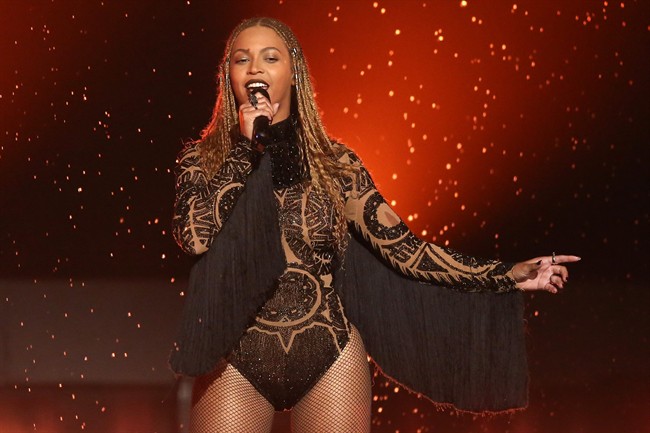Were you confused when you looked at this year’s Coachella lineup? Didn’t recognize any of the artists, save for Beyonce?

If you’re in your 40s, you aren’t alone.
Maybe it has already happened to you. Unfamiliar music starts floating out of your favourite radio station. Your kids give you the stinkeye when you start talking about music.
Scary thoughts begin to appear spontaneously. What happened to music? you ask. Why isn’t it as good as when I was young? What’s wrong with kids these day? OMG! I’m old!
Yep. It happens to everyone. In the immortal words of Abe Simpson: “I used to be with it, but then they changed what ‘it’ was. Now what I’m with isn’t ‘it,’ and what’s ‘it’ seems weird and scary to me. It’ll happen to you.”
“Every generation has the biological right to believe that the music of their youth is the greatest music ever made,” British music writer Simon Frith once wrote. He was dead on.
There’s a musical sweet spot in our lives that lasts roughly from the moment we enter high school to sometime in our early 20s.
It’s during this decade that we come of age musically, spending lots of time and money on vinyl, CDs, concerts, digital files and headphones. And many of us use music as a way to project our identity to the world. It could be as simple as a T-shirt, the way you cut your hair, or a full-on uniform: metal, goth, punk, pop — whatever.
But by the time we get to our mid-20s, life starts to intrude. Jobs. Relationships. Mortgages. Kids. And by then, you’ve pretty much established your identity, so the need for a musical uniform falls by the wayside. You may also find yourself spending less time searching out new music because the number of hours in a day is limited. It becomes easier to fall back on the stuff that you already like.
Before you know it, you begin to wonder where all the good music went. And it can’t be you, right? It’s those damn kids! What’s wrong with them?

Get breaking National news
Now read this:
“Forms and rhythms in music are never altered without producing changes in the entire fabric of society. It is here that we must be so careful since these new forms creep in imperceptibly in the form of a seemingly harmless diversion. But little by little, this mischief becomes more and more familiar and spreads into our manners and pursuits.”
To paraphrase this 2,500-year-old quote from Plato: Kids! Their music is ruining everything!
In the 5th century, St. Basil wrote this about the new music he encountered:
“There are towns where one can enjoy all sorts of histrionic spectacles from morning to night. And, we must admit, the more people hear lascivious and pernicious songs, which raise in their souls impure and voluptuous desires, the more they want to hear.”
And then we have this from John S. Dwight, a composer of hymns in the 19th century, commenting on the new popular music of the day:
The more things change, right? Which brings me to the release of this year’s Coachella lineup poster.
If we look at Coachella as the barometer of the American musical zeitgeist, it’s clear that rock music, in all its forms, has fallen below rap, hip-hop, and R&B as a driver of popular culture in the United States. Festival organizers have been working for months, studying all sorts of data in hopes of predicting which performers will be at their coolest — or about to break wide open — by the time April r0lls around. They clearly believe that we’re living in a hip-hop world.
And based on the data I’ve seen, I can’t disagree. Today’s music is driven by what the kids are streaming on services like Spotify. Every week, the top 200 is dominated by hip-hop, R&B and pop. It’s exceedingly rare to see a single rock song amongst that number if your name isn’t Imagine Dragons. The young people who make up the majority of the Coachella attendees need to be presented with the music they consume. Fish where the fish are, you know?
The vibe of the Coachella festival has changed dramatically since its first year in 1999, which was for all intents and purposes, a rock event.

By 2006, there was a distinct electronic tinge to the lineup, a nod to the growing popularity of EDM.

R&B, rap and hip-hop were well-ingrained by 2012.

Last year, it was clear things were changing.

And now, in 2018…
If you want to dig into the history of Coachella, here’s every poster published since 1999. If anyone wants to create a genre analysis infographic, be my guest.
Don’t get me wrong. I’m not saying that rock is dead and is fading away. But after dominating culture for more than 50 years, rock has definitely slipped from being the top music genre, at least in the U.S. Canada is still largely a rock-driven marketplace, but even that is changing.
If you’re a child of the ’70s, ’80s or ’90s, I understand if your reaction to the 2018 poster is, ‘What’s happened to music? I don’t know any of these names!’ You, my friend, are having a Generation Gap moment. The Coachella posters don’t lie.
The good news, though, is that you may yet experience a transformational musical mid-life crisis. Spotify says that once you hit the ripe old age of 42, many of its users, perhaps scared by their grey hairs, are shocked into a new period of music discovery.
Maybe it’s time for a trip to Coachella, after all.
Alan Cross is a broadcaster for 102.01 The Edge and a commentator for Global News.










Comments